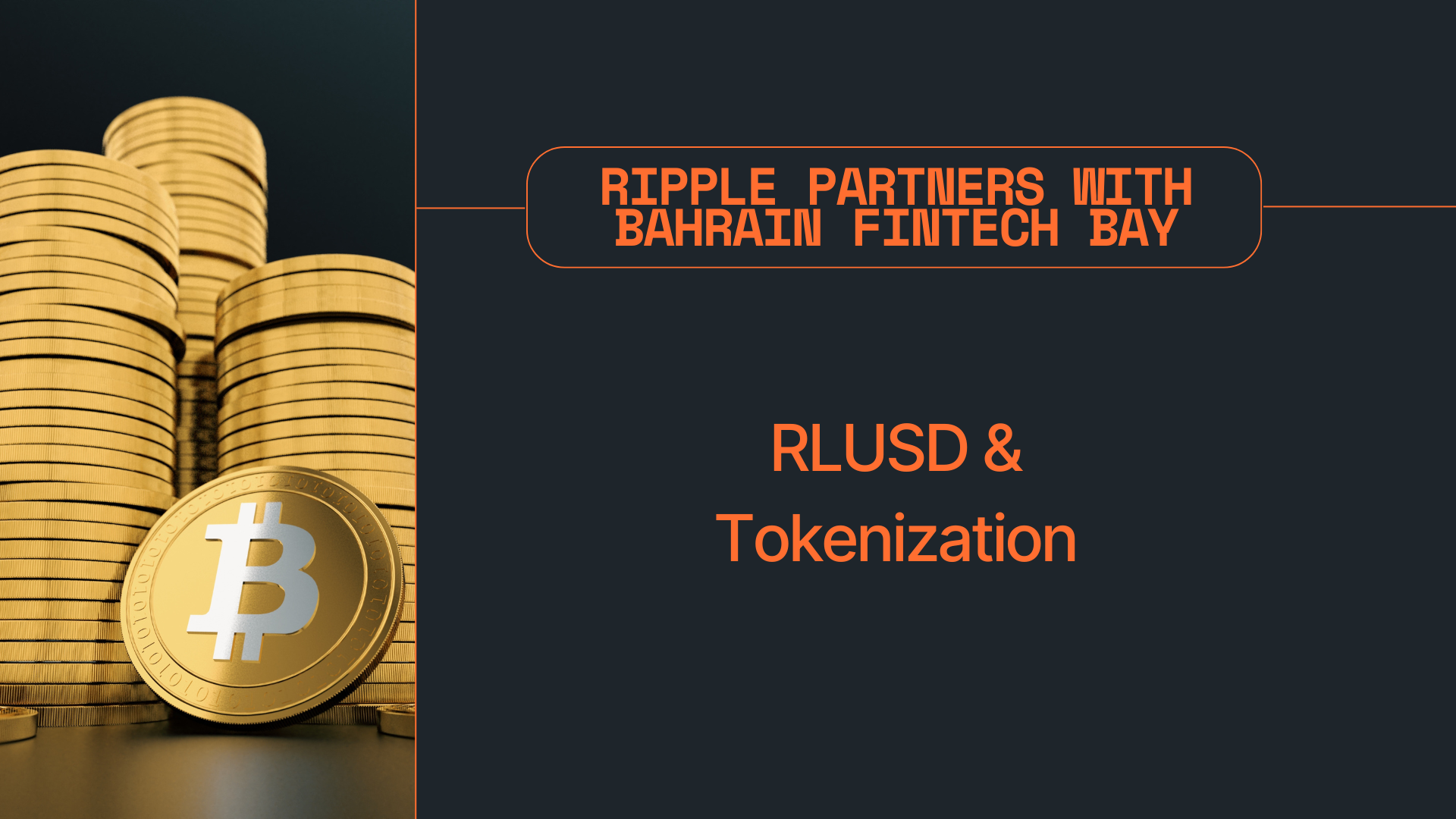
Ripple has struck a strategic partnership with Bahrain Fintech Bay (BFB), positioning the company’s RLUSD dollar stablecoin and tokenization tech at the center of new pilots in the Gulf. The collaboration stitches together proof-of-concepts, accelerator programs, and “showcase” deployments in cross-border payments, digital assets, stablecoins and tokenization—a practical way to turn slide-deck narratives into production-grade experiments under local oversight.
While the announcement reads like a regional expansion, the timing signals something bigger: Ripple is building a regulated corridor for tokenized finance in the Middle East. Bahrain—already home to a proactive fintech ecosystem—adds a new on-ramp to the company’s growing Dubai base, where Ripple obtained a Dubai Financial Services Authority (DFSA) license earlier this year. That license gives Ripple a regulated hub in the DIFC and provides a clear venue for enterprise clients, from banks to fintechs, to test and scale blockchain payments and digital-asset services.
What’s actually in the Bahrain deal
According to the official Ripple release, the BFB partnership spans: (1) proof-of-concepts and pilot projects tailored to Bahrain’s fintech ecosystem, (2) solution showcases across blockchain, cross-border payments, digital assets, stablecoins (RLUSD) and tokenization, (3) education and accelerator programs, and (4) local ecosystem events to connect regulators, banks, and builders. In other words, this isn’t a single integration—it’s an on-going pipeline designed to test, iterate, and commercialize. CoinDesk’s same-day report adds that Ripple is also engaging the local community at Fintech Forward 2025 this week, underlining the ecosystem-building focus.
For Bahrain, the benefit is obvious: guided access to enterprise-grade digital-asset infrastructure and a chance to pilot tokenization inside a jurisdiction that has already punched above its weight in fintech. For Ripple, it’s a bridge into the wider Gulf, with Bahrain’s incubator community acting as connective tissue between banks, fintechs, and regulators.
RLUSD takes the stage
Ripple’s RLUSD—introduced in late 2024 and live across the company’s institutional stack—is the stablecoin thread weaving these efforts together. The DFSA formally recognized RLUSD earlier this year, giving it a foothold in Dubai’s regulated financial zone; that recognition matters when you’re trying to plug a stablecoin into tokenized funds, payments, and settlement workflows that institutions will actually use.
In recent months, Ripple has pushed RLUSD beyond “just another stablecoin.” Cointelegraph reported that Securitizeadded RLUSD off-ramps for BlackRock and VanEck tokenized funds—exactly the sort of “TradFi meets crypto” integration that tokenization boosters have promised for years. And in September, Reuters highlighted a separate initiative linking DBS and Franklin Templeton to tokenized money-market fund trading, with RLUSD set to list alongside tokenized fund shares on the DBS Digital Exchange—a concrete example of stablecoin + tokenized asset interoperability.
Pair those developments with Bahrain’s sandbox-friendly posture and the new BFB partnership, and a pattern emerges: pilot tokenized assets, settle in RLUSD, and do it under recognizable regulatory flags. For anyone tracking the XRP Ledger (XRPL) tokenization narrative, that’s a significant runway for real-world adoption.
Why the Middle East, why now
The Gulf’s growing crypto and fintech scene is not just marketing. The DFSA license gives Ripple the ability to offer regulated cross-border crypto payments from Dubai’s DIFC—a credibility anchor that many global banks look for before experimenting with digital assets. With Bahrain Fintech Bay, Ripple gains a partner whose mission is to co-pilot innovation: bring regulators and enterprises into the same room, test live rails, and measure results. This region has also become a proving ground for tokenized securities, making it a logical place to connect the dots between stablecoins, payments, and on-chain capital markets.
CoinDesk characterizes the Bahrain move as a boost for RLUSD, not just a footprint grab. If tokenized funds, trade finance assets, or payment flows can reliably settle in RLUSD across Dubai and Bahrain stacks, Ripple edges closer to an institutional-grade stablecoin network—one that can co-exist with XRP and XRPL-based assets without relying on retail speculation.
What to watch next
1) Named pilots and measurable KPIs. Expect the first case studies to land in payments and tokenized assets. The tell will be named counterparties (banks, corporates, fintechs) and operational KPIs like settlement windows, failure rates, and cost deltas versus legacy rails.
2) RLUSD integrations and listings. DFSA recognition was step one; additional exchange listings, custodians, and fund-platform hooks will determine whether RLUSD becomes a default institutional stablecoin in the region. Watch for custody partnerships, broker connectivity, and treasury-grade tooling.
3) Tokenized-fund plumbing. The Securitize integrations and DBS/Franklin tie-up are early proofs. If Bahrain pilots link to those same plumbing layers—off-ramps, collateral flows, repo-style credit—the tokenization narrative gets teeth.
4) Regulatory harmonization. Bahrain’s incubator model works when supervisors are in the loop. The more shared frameworks we see between Dubai and Manama—especially around stablecoin treatment and tokenized-security transfer rules—the smoother the enterprise sales cycle will be.
The fine print and risks
No regional partnership magically solves the global stablecoin arms race. RLUSD still competes with entrenched, liquid incumbents, and every institutional deal must square with risk, compliance, and accounting teams. Even with DFSA recognition, new markets require new approvals, and tokenized-security rules are still a moving target. The BFB collaboration sets up the right sandbox, but commercial scale depends on ticking every box for banks and asset managers—custody, audit, reporting, and counterparty risk—while demonstrating real cost/time savings.
Still, as a Gulf on-ramp for RLUSD and tokenization, Bahrain looks like a smart next step. The combination of regulatory clarity, incubator muscle, and cross-border adjacency to Dubai gives Ripple a credible lab to prove that stablecoins + tokenized assets are more than a conference meme.
Conclusion
Ripple’s tie-up with Bahrain Fintech Bay is less about a single deployment and more about institutionalizing the playbook: pilot tokenization and cross-border payments, settle in RLUSD, and do it in jurisdictions that welcome regulated digital-asset infrastructure. If the early pilots deliver measurable wins, expect the Gulf to become a showcase for how stablecoins and tokenized funds can operate side-by-side—moving from proof-of-concepts to the kind of day-to-day finance that institutions actually use.